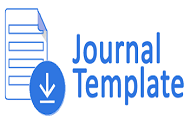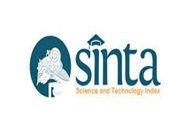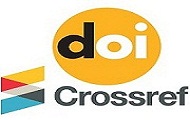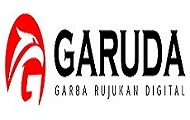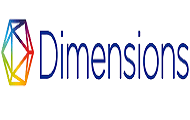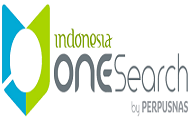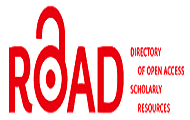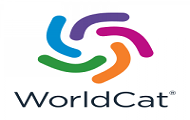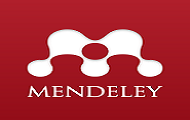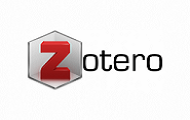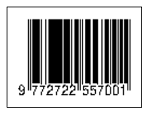Analisis Pendapatan dan Belanja Desa di Desa Tegalrejo Kecamatan Tugumulyo Kabupaten Musirawas
DOI:
https://doi.org/10.31851/jmediasi.v6i1.13181Abstract
ABSTRACT
This study aims to analyze Village Income and Expenditures in Tegalrejo Village, Tugumulyo District, Musirawas Regency per year, to determine the increase and decrease in village income and expenditure and whether their management is in accordance with the principles of Village financial management, namely Participatory, Transparency and Accountability and Discipline. Budget. This research was conducted using a qualitative descriptive method and data collected through observation, interviews, and documentation. The data is in the form of an archive of reports on the realization of the Village Budget for 2019,2020, 2021, the results of the description are obtained through a comparison of Permendagri No. 113 of 2014 with facts and conditions in the Tegalrejo Village. The results of the study show that the management of Village Finance, especially Village Income and Expenditures in the Tegalrejo City Village in general, has followed the Minister of Home Affairs Regulation and the Law governing Village finances, and has implemented the principles of Village financial management, namely Participatory, Transparency and Accountability and Discipline. Budget.
Keywords: Village Income and Expenditure, Participatory, Transparent and Accountable, Budget Discipline.
ABSTRAK
Penelitian ini bertujuan untuk menganalisis Pendapatan dan Belanja Desa di Desa Tegalrejo Kecamatan Tugumulyo Kabupaten Musirawas per tahunya, untuk mengetahui peningkatan dan penurunan pendapatan dan belanja desa dan pengelolaanya apakah sudah sesuai dengan asas pengelolaan keuangan Desa yaitu Partisipatif, Transfaran dan Akuntabel serta Disiplin Anggaran. Penelitian ini dilakukan dengan menggunakan Metode deskriptif kualitatif dan data dikumpilkan melalui Observasi, wawancara, dan dokumentasi. Data berupa arsip laporan realisasi Anggaran pendapatan dan Belanja desa tahun 2019,2020,2021, hasil deskripsi didapat melalui perbandingan Permendagri No 113 Tahun 2014 dengan fakta dan Kondisi yang ada di Desa Tegalrejo. Hasil Penelitian menunjukan bahwa pengelolaan Keuangan Desa khususnya Pendapatan dan Belanja Desa di Desa Tegalrejosecara garis besar telah mengikuti Peraturan Mentri dalam Negri dan Undang-Undang yang mengatur tentang keuangan Desa, dan telah menerapkan asas pengelolaan keuangan Desa yaitu Partisipatif, Transfaran dan Akuntabel serta Disiplin Anggaran.
Kata kunci: Pendapatan dan Belanja Desa, Partisipatif, Transparan dan Akuntabel, Disiplin Anggaran.
References
Djaenuri, A., Aisyah , S., & Enceng. (2018). Sistem Pemerintahan Desa. Tanggerang Selatan : Universitas Terbuka.
Hoesada, J. (2019). Akuntansi Desa. Jakarta Selatan: Salemba Empat.
Liando, L. Y., Lambey, L., & Wokas, H. R. (2017). Analisis Pengelolaan dan Pertanggung jawaban Anggaran Pendapatan Dan Belanja Desa di Desa Kolongan Kecamatan Kombi Kabupaten Minahasa. Jurnal EMBA.
Peraturan Pemerintah Nomor 71 Tahun 2010 Tentang Standar Akuntansi Pemerintah (SAP)
Permendagri Nomor 113 tahun 2014 Tentang Pengelolaan Keuangan Desa
Soemantri, B. T. (2011). Pedoman Penyelenggaraan Pemerintahan Desa. Bandung: Fokus Media.
Somantri , Y., & Nanda, U. (2019 ). Akuntabilitas Pengelolaan Anggaran Pendapatan Dan Belanja Desa (APBDes) Kecamatan Sukahening Kabupaten Tasikmalaya. 131.
Sugiyono. (2019). Metode Penelitian Kuantitatif. Bandung: ALfabeta. Sugiyono. (2021). Metode Penelitian Kualitatif. Bandung: Alfabeta.
Sujarweni, V. (2015). Akuntansi Desa . Yogyakarta: Pustaka Baru Press.
Sujarweni, v. W. (2015). Metode Penelitian Bisnis dan Ekonomi. Yogyakarta: Pustaka Baru Press.
Undang-Undang Nomor 6 Tahun 2014 Tentang Desa.
Undang-Undang Nomor 32 Tahun 2014 Tentang Pemerintahan Daerah.
Downloads
Published
Issue
Section
License
Copyright (c) 2023 Jurnal Media Akuntansi (Mediasi)

This work is licensed under a Creative Commons Attribution-NonCommercial 4.0 International License.
The copyright of the received article shall be assigned to the publisher of the journal licensed under a Creative Commons Attribution-NonCommercial 4.0 International License in line with the license, authors and any users (readers and other researchers) are allowed to share and adapt the material only for non-commercial purposes. In addition, the material must be given appropriate credit, provided with a link to the license, and indicated if changes were made. If authors remix, transform or build upon the material, authors must distribute their contributions under the same license as the original.


